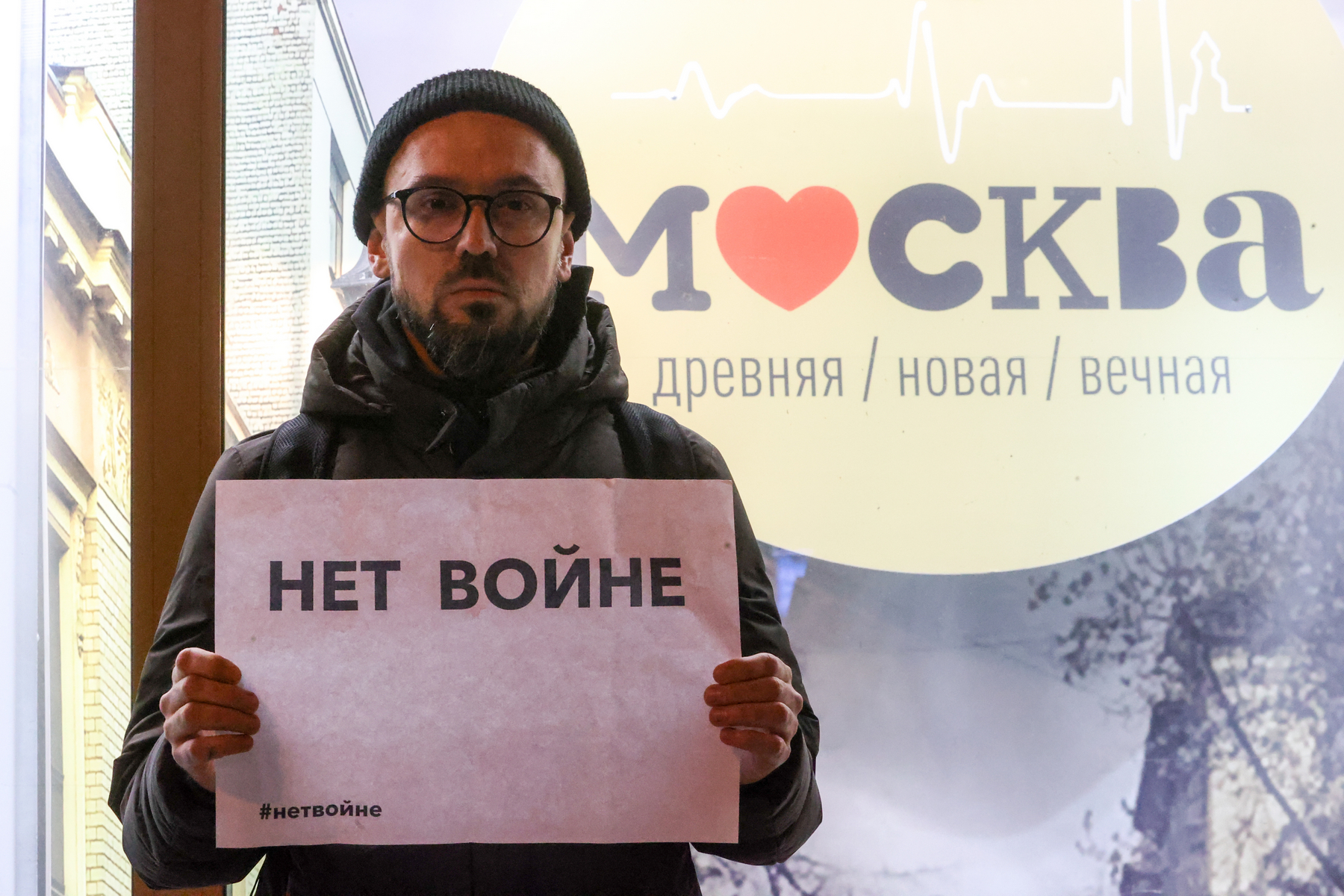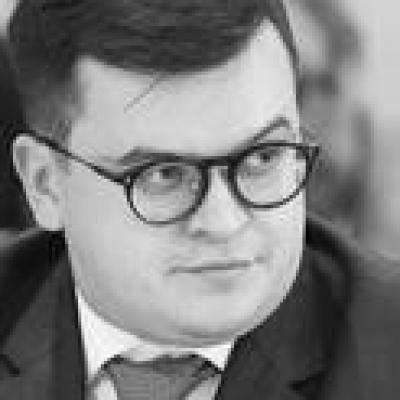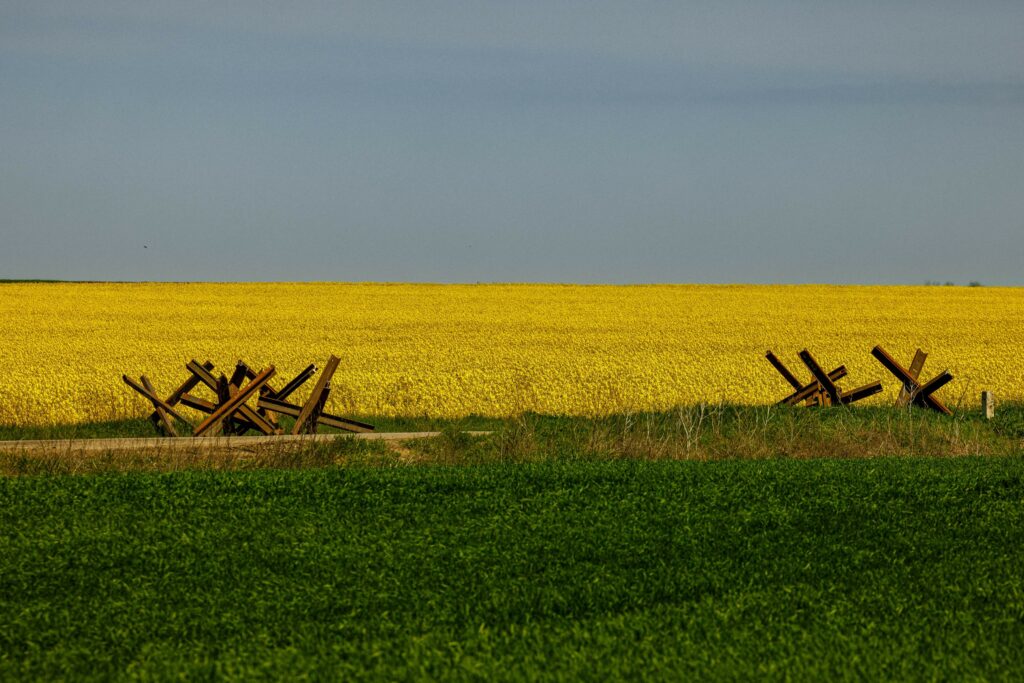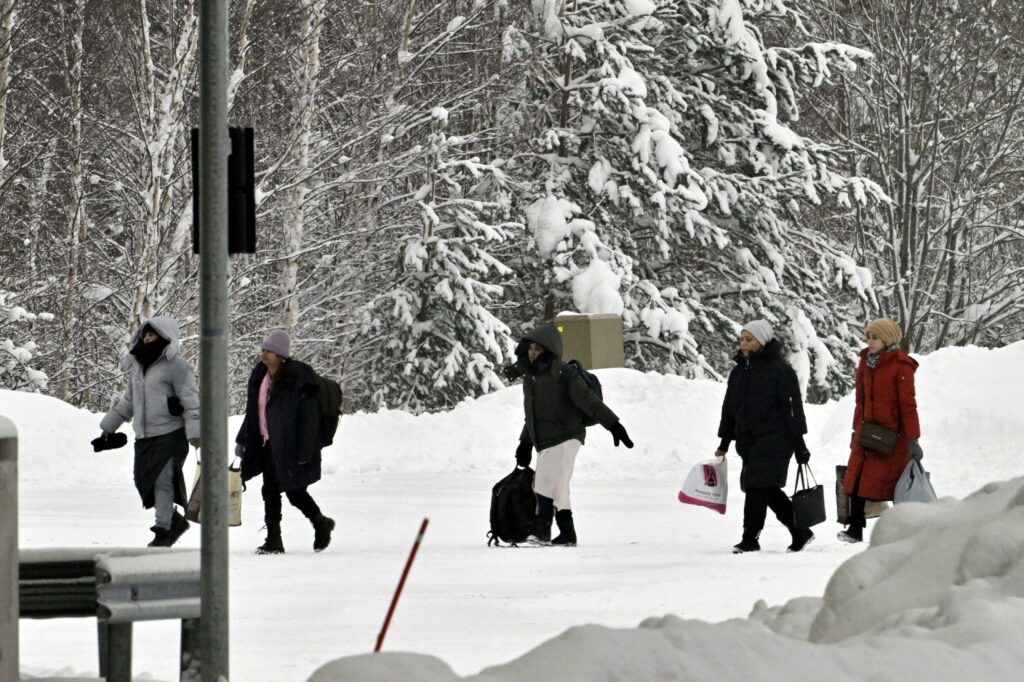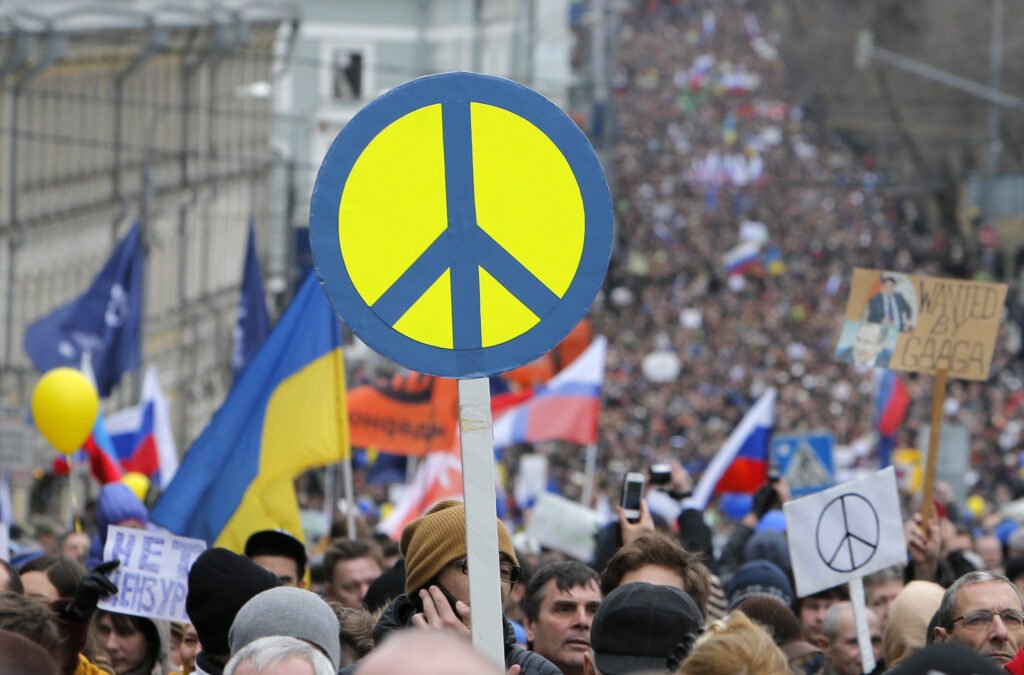A new, hot phase of the war between Russia and Ukraine has split Russian society. There is no hint of a second coming of the «Crimean Consensus». Right before the current phase of the confrontation, the Levada Center surveyed Russians about their attitudes to Ukraine and the so-called LPR and DPR: 51% said that the prospect of war «scares them a lot» or «largely scares them», another 22% claimed it «doesn’t scare them much».
The subsequent invasion has widened this split, even among Russia’s top brass. It was opposed before the first shot by figures like retired Colonel-General Leonid Ivashov, a former high-ranking employee of the Russian Ministry of Defense, known for his national-patriotic views. Similarly Boris Mezhuev, one of the ideologists of the Russian Spring of 2014, wrote on his Facebook account on February 24 that he was closing his website, «Russian Idea», dedicated to conservative ideology and Russian Spring, because «Russia now needs its own ‘reasonable’ paleoconservatism, which would be somewhat similar to American paleoconservatism, which some of its critics called ‘isolationism» or ‘anti-interventionism.’" In fact, Mezhuev now calls to focus on domestic politics, while not getting involved in foreign affairs. In the days that followed, he would speak out against the war several more times.
Already after the outbreak of hostilities, some representatives of the Communist Party of the Russian Federation and the New People, who had voted a few days earlier for the recognition of the LPR and DPR, made calls to stop them. For example, a State Duma deputy from the New People, a former comic Sangadzhi Tarbaev, spoke out against it. Three State Duma deputies from the Communist Party condemned the war: Mikhail Matveev, Oleg Smolin and the popular ex-senator Vyacheslav Markhaev. They all say the same thing: the recognition of the LPR and the DPR is one thing, but what is happening now is unacceptable. «To my great regret, the entire campaign to recognize the DPR and LPR had a completely different idea and plan, which was initially hidden, and as a result, we ended up in a state of full-scale confrontation and war between the two states» wrote Vyacheslav Markhaev.
Big businessmen are calling for peace. Mikhail Fridman wrote a heartfelt letter to employees of one of his companies. Oleg Deripaska criticized the current economic situation in his telegram channel without tiptoeing round the subject. Oleg Tinkov demanded an end to the war. Roman Abramovich became a mediator in the negotiations at the request of Ukraine.
On the other hand, the recognition of the LPR and the DPR was supported by members of the «Society.Future» movement like Roman Yuneman, popular in the Moscow liberal circles. He had previously participated in the elections of deputies of the Moscow City Duma and is one of the most prominent opponents of the online voting now being introduced.
At the same time, having formally condemned the invasion of Russian troops, after the outbreak of hostilities, the participants in the movement published its official position on their social media accounts. In particular, it says: «… we are Russian people, we cannot abandon our own army and our own people in a difficult hour. We are not going to sympathize with Ukraine, which methodically killed the Russians of Donbass for eight years. That is why we are with the Russian people and with the Russian army. After all, only a lost war is worse than a war. All our hopes are now focused on a speedy end to the conflict and a transition to the diplomatic phase. And remember that Russia may be wrong, but it is our Motherland» (it is noteworthy that this statement could not be found on the movement’s website, and all its leaders tried not to comment publicly in the following days). Only on February 28, Roman Yuneman wrote that «Society.Future» is donating blood for Russian hospitals and helping evacuees.
«Pacifists» call their opponents «fascists» and «occupiers»; «hawks» in response call them «cowards», traitors" and a «fifth column». The war between Russia and Ukraine is turning into a civil confrontation within Russia right before our eyes.
The role of official discourse
Oddly enough, official discourse made its contribution to the transformation of the «imperialist war» into a «civil war» (according to the Leninist formula). Alexey Yurchak in the book «Everything Was Forever, Until It Was No More: The Last Soviet Generation» showed how it worked in the USSR: the official discourse at the same time condemned «cosmopolitanism» but backed «internationalism»; it criticized «bourgeois music», but supported the music of Western «oppressed classes». As a result, the chairman of the Komsomol cell could well organize jazz concerts or exchange records of British rock musicians.
Something similar seems to be happening now. At the official level, for many years the Ukrainian people have been spoken of as «fraternal.» At the same time, it is not denied that it is now a separate state (and even Ukrainian sovereignty over territories of the LPR and DPR was not officially questioned until last week).
As a result, opponents of aggression against Ukraine perceive this war, on the one hand, as an invasion of an independent state, and on the other, they often quite sincerely desire the defeat of the Russian army. Therefore they perceive this war not as a war between the armies of two states, but as a war against the regime of Vladimir Putin, who himself is perceived by them as occupying, infringing on their sovereignty as citizens of Russia.
As Aleksey Chadayev, another of the ideologues of the annexation of Crimea in 2014, acknowledged, along with the annexation of Crimea in 2014, the Russians joined the civil war (this post is now unavailable).
The pacification of Russia
In the current situation, everything as if positive shifts in both the foreign and domestic policy of Russia are possible only with a change in the political regime itself (and even then, there is no guarantee). And this requires some general actions of the opposition (from the most radical to the most moderate).
The problem, however, is that splits such as those shown above are at the heart of Putin’s dominance of domestic politics. People who are critical of Putin enthusiastically swear at each other and accumulate grievances. For some «liberals» it turns out that you cannot vote for Alexei Navalny because he once went to nationalist rallies. Neither can you back the Communist Party of the Russian Federation — because they are «Stalinists.» Nor must you endorse the «New People» — because they supported the recognition of the DPR and LPR. Or Yabloko — because it is a leader’s party. Another write off now could be Roman Yuneman — because he supports the army in this war, etc. This list could be endless. The conditional «leftists» have their own similar list — someone is accused of the collapse of the USSR, another of religiosity, and so the contrary, of moving away from «traditional Russian religiosity,» that is, of atheism.
With the deterioration of the socio-economic situation, the splits will probably deepen. Both social and regional-ethnic disagreements will flare up. However, in domestic politics, it will be necessary to negotiate and make compromises: those who were for the war and those who were against it will be forced to sit down and negotiate on the basis of a more general consensus — dissatisfaction with the current Russian authorities. At the same time, with a high degree of probability, many more of those who today sit in the Kremlin offices and Russian ministries will have to be involved in these negotiations. To do this, the leaders of various political groups will have to calm down themselves and, which is a much more difficult task, try to calm their supporters.
Another option could be a revolution led by one force, though it seems that Russia, within its current borders, will not survive such a test, and the gradual «decay» under sanctions will sooner or later run into a need to change the regime and elites.
Russians have a number of very hard years ahead. A civil war at the beginning of the 20th century ended exactly one hundred years ago. Russia emerged from it with heavy losses in territories and population. Not to mention the economic damage and historical consequences. The current conflict has the potential to develop in similarly tragic directions. There is less and less chance of stopping it.
